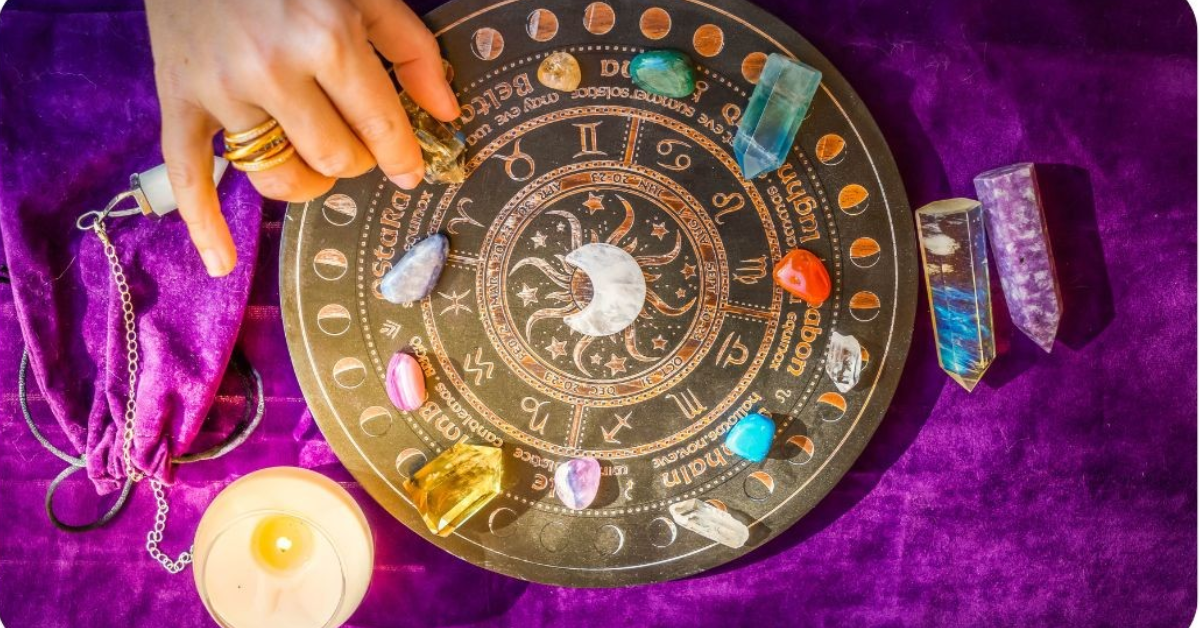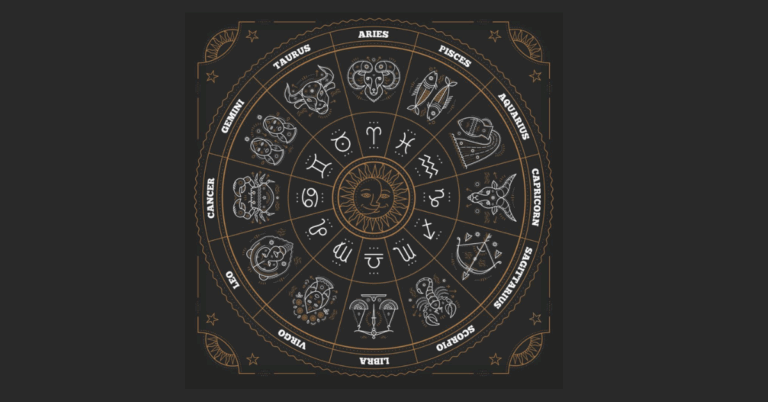Future Astrology Trends Explained by Astro Kapoor
The world of Future Astrology is rapidly evolving as new technologies and methodologies reshape how we interpret celestial influences. In recent years, intuitive practices have merged with data-driven techniques, offering enthusiasts increasingly personalized insights. From smartphone applications that deliver daily horoscopes to advanced algorithms capable of simulating planetary alignments, astrology has transcended its traditional boundaries. Whether you’re a seasoned astrologer or a curious newcomer, understanding these emerging trends is essential. As the cosmos continues to inspire, astrologers like Astro Kapoor are at the forefront, pioneering innovative ways to blend ancient wisdom with modern tools.
As we delve into the era of Astrology Future Prediction using cutting-edge resources, the industry is witnessing unprecedented growth. Consumers are no longer satisfied with generic forecasts: they demand precision, customization, and rapid access. To meet these expectations, astrologers are incorporating artificial intelligence, augmented reality, and big data analytics into their practice. These advancements not only enhance accuracy but also democratize access to astrological guidance, making it available to anyone with a smartphone or internet connection. In this post, we will explore how digital platforms, AI integration, and community-driven approaches are setting new standards for astrological services. By the end, you’ll gain a clear understanding of where astrology is headed and how you can harness these tools for your personal growth.
Embracing Digital Horoscope Platforms
Digital horoscope platforms represent one of the most significant shifts in modern astrology. A decade ago, printed newspapers and monthly magazines served as primary sources for your zodiac insights. Today, intuitive mobile apps and web-based portals offer on-demand readings—tailored to each user’s birth chart, current planetary transits, and unique life events. These platforms track your preferences and past readings, allowing for a truly personalized experience. As more people seek guidance in real time, astrologers are building intuitive interfaces that not only deliver forecasts but also teach users how to interpret the results themselves.
With the proliferation of smartphones, astrologers have seized the opportunity to bring Future Astrology into the palm of our hands. Subscription-based services now deliver daily, weekly, and monthly forecasts via push notifications. Meanwhile, some platforms offer live chat sessions, where users can consult an astrologer one-on-one. Such immediate access deepens user engagement, nurturing a community of astrology enthusiasts who share insights, compare forecasts, and even collaborate on research projects. By leveraging interactive features—like chatbots that answer frequently asked questions—digital horoscope platforms are making astrological wisdom more accessible than ever.
Interactive Mobile Apps Reinventing Personal Forecasts
Mobile applications dedicated to astrological insights have come a long way. Early horoscope apps provided little more than generic sun-sign predictions, but today’s offerings delve into birth charts, transit analyses, and compatibility reports. Utilizing GPS data, some apps adjust your forecasts based on your exact location, accounting for local time zones and geographical nuances. Gamification elements—such as point systems and achievement badges—reward users for consistent engagement, encouraging them to explore deeper layers of their astrological profiles. These interactive features are transforming casual horoscope readers into active participants who track planetary shifts and their potential impacts on daily life.
Another breakthrough is the integration of social sharing within these apps. Users can connect with friends, compare their natal charts, and even co-host live horoscope discussions. This social aspect fosters a collaborative environment where users collectively interpret astrological events. For instance, during significant celestial occurrences—like Mercury retrograde or eclipses—app communities often host live webinars led by expert astrologers. Such events provide users with real-time updates on how cosmic shifts may influence various aspects of life, from relationships to financial decisions. As more individuals join these digital tribes, astrology’s relevance in the digital age only continues to grow.
Virtual Reality and Augmented Experiences
Virtual reality (VR) and augmented reality (AR) are no longer confined to gaming and entertainment; they’re beginning to shape how we experience Astrology Future Prediction in immersive ways. Imagine donning a VR headset and navigating a three-dimensional model of the solar system, where you can observe planetary positions, retrogrades, and aspects in real time. This immersive experience not only deepens comprehension but also adds an element of wonder to astrological study. Some AR apps, accessible through smartphones or tablets, overlay celestial charts onto your surroundings, allowing you to “see” the constellations and their current positions against the night sky—even during daytime.
These technologies also facilitate interactive learning modules. For beginners, virtual tutorials can demonstrate how to construct and interpret a birth chart step-by-step. Advanced users might explore hypothetical scenarios—such as how a future planetary alignment could influence career prospects or relationships. As VR and AR become more affordable, expect to see specialized astrology centers offering guided, immersive workshops that blend traditional teachings with digital innovation. By merging ancient wisdom with futuristic interfaces, these experiences are redefining how astrology is taught and practiced, ensuring that knowledge of the stars remains vibrant and engaging.
Integration of AI in Predictive Astrology
Artificial intelligence (AI) is arguably the most transformative force in contemporary astrology. By harnessing machine learning algorithms and natural language processing (NLP), astrologers can sift through vast amounts of historical data—ranging from planetary movements to recorded human behaviors—and identify patterns previously invisible to the human eye. Such analyses not only enhance the precision of forecasts but also uncover nuanced correlations that enrich our understanding of cosmic influences. As AI continues to mature, it’s poised to revolutionize how Future Astrology is practiced and perceived.
One of the primary applications of AI in astrology is the development of predictive models. Traditional methods might require hours of manual chart analysis, but AI-driven platforms can generate a comprehensive forecast in seconds. These systems analyze your natal chart against decades of aggregated data, flagging potential life themes based on recurring astrological signatures. For instance, if a certain planetary configuration historically correlates with career breakthroughs, the model will highlight similar patterns in your chart and alert you when analogous transits occur. This blend of historical context and real-time computation enables astrologers to offer more targeted, evidence-based guidance.
Machine Learning for Personalized Readings
Machine learning techniques, such as neural networks and decision trees, are at the core of modern Astrology Future Prediction tools. By training on extensive datasets—comprising birth dates, transit timelines, and documented life events—these algorithms refine their predictive capabilities over time. As users input feedback about the accuracy of their readings, the system learns to adjust its weighting of certain astrological factors, thereby offering increasingly personalized forecasts. For example, if a cohort of users born under a specific lunar placement consistently reports strong emotional sensitivity during Venus transits, the algorithm will assign greater significance to that combination in future predictions.
Moreover, AI-driven chatbots can answer complex astrological queries with remarkable speed. Leveraging NLP, these chatbots interpret user questions—such as, “How will Jupiter’s alignment affect my finances next quarter?”—and generate a coherent, context-aware response grounded in established astrological principles. While chatbots are not a substitute for in-depth personal consultations, they serve as an efficient first line of guidance. Many platforms combine chatbot interactions with live sessions by human astrologers, ensuring that users receive both quick answers to common questions and deeper insights when needed. This hybrid approach caters to diverse preferences, making astrology more inclusive and scalable.
Blockchain and Data Security in Astrology
As astrology becomes increasingly digitized, data security and user privacy are paramount. Enter blockchain technology: a decentralized ledger system that promises enhanced transparency and security. In the context of astrology, blockchain can be used to timestamp celestial event data—such as the exact position of planets at a given moment—ensuring that records remain immutable and verifiable. This is crucial for researchers who rely on historical transit data to validate predictive models. By anchoring astrological data to a blockchain, astrologers can bolster the credibility of their findings and protect against tampering.
Additionally, blockchain can safeguard user information. When individuals submit their birth details, location, and personal preferences to an astrology platform, they often worry about how this sensitive information will be used or shared. By employing blockchain-based identity management systems, platforms can give users greater control over their personal data, allowing them to grant or revoke access as they see fit. This approach not only builds trust but also aligns with global trends toward data sovereignty and privacy compliance. As more astrology services adopt blockchain, we anticipate a new standard for ethical data handling in the spiritual and wellness industries.
Community-Driven Approaches and Collaborative Research
Beyond digital platforms and AI, community engagement is shaping future directions in astrology. Online forums, social media groups, and collaborative research networks are empowering both amateurs and professionals to contribute to the body of astrological knowledge. These communities often pool datasets, cross-validate interpretations, and share anecdotal evidence, leading to a richer, more nuanced understanding of planetary influences. By democratizing research, astrology transcends its image as an esoteric art and becomes a collective endeavor rooted in shared inquiry.
Astro Kapoor has been instrumental in fostering such collaborative initiatives. Through webinars, virtual workshops, and interactive forums, participants from diverse backgrounds co-create research agendas. For instance, a recent community project sought to analyze correlations between specific eclipse patterns and socioeconomic indicators across different countries. Volunteers contributed historical economic data, while astrologers supplied detailed eclipse charts. By integrating cross-disciplinary expertise, the group uncovered insights that have implications for both astrology and global trend analysis. These collaborative efforts underscore a broader trend: astrology is no longer confined to solitary practice; it thrives on community-driven exploration.
Crowdsourced Data and Verification
Crowdsourced data collection is a cornerstone of modern astrological research. Platforms encourage users to log life events—such as career changes, relationship milestones, and health developments—alongside corresponding planetary transits. Over time, this collaborative dataset becomes a powerful tool for hypothesis testing. By analyzing thousands of entries, researchers can identify statistically significant correlations that may have eluded individual astrologers. To ensure data integrity, many platforms implement verification protocols, requiring multiple users to confirm unusual or extraordinary claims before incorporating them into research models.
These verification processes often involve peer review, where experienced astrologers assess the validity of crowdsourced entries. When a pattern appears—for example, multiple users reporting financial windfalls during a Mercury-Jupiter conjunction—astrologers examine underlying birth chart factors to determine causality. This rigorous approach blends qualitative interpretation with quantitative validation, enhancing the credibility of astrological research. As more platforms adopt standardized verification methods, readers can trust that their forecasts and predictions are grounded in robust, peer-reviewed analysis rather than unsubstantiated anecdotes.
Social Media and Global Outreach
Social media has emerged as a vital channel for astrological discourse. Influencers, professional astrologers, and enthusiastic amateurs share daily forecasts, astrological memes, and educational content across platforms like Instagram, Twitter, and TikTok. These bite-sized insights often drive users to explore deeper analyses on dedicated astrology websites or apps. Platforms like YouTube host live-streamed planetary updates where astrologers dissect major celestial events—such as eclipses, retrogrades, and planetary ingresses—with commentary on how they might affect different zodiac signs.
This global outreach is particularly impactful in regions where traditional astrology has deep cultural roots, such as India, China, and the Arab world. While local traditions may differ—Vedic astrology, Chinese astrology, and Hellenistic astrology each have unique methodologies—social media fosters cross-pollination of ideas. Collaborative livestreams featuring experts from diverse traditions allow users to compare interpretations and decide which approach resonates most with their worldview. As a result, astrology is becoming both more inclusive and more dynamic, reflecting a tapestry of global perspectives.
Predictive Accuracy and Ethical Considerations
While technological advancements promise greater precision in Future Astrology, they also raise ethical questions. As predictions become more targeted, astrologers must balance client expectations with responsible practice. Over-reliance on AI models can risk reducing astrological guidance to deterministic forecasts, undermining the nuanced, humanistic approach at astrology’s core. To mitigate this, reputable astrologers emphasize that predictions are probabilities, not certainties. Even the most sophisticated algorithms cannot account for free will, personal growth, or unforeseen life changes.
Transparent communication is essential. Clients should understand the basis for predictions: which planetary aspects were considered, how historical data influenced the forecast, and what assumptions underlie the model. Platforms are increasingly incorporating disclaimers and educational pop-ups to remind users that astrological guidance is a tool for self-awareness, not absolute prophecy. By fostering an informed user base, astrologers maintain ethical standards while leveraging technology to enhance, rather than replace, human insight.
Balancing Technology with Traditional Wisdom
Astro Kapoor advocates for a balanced approach: harnessing the power of digital tools while preserving the intuitive essence of astrology. Traditional techniques—like the art of chart synthesis, empathic consultation, and symbol interpretation—remain central to meaningful guidance. Digital platforms serve as supplements, enabling astrologers to process complex calculations quickly and share insights broadly. For newcomers, online tutorials can provide foundational knowledge, but personal mentorship and in-depth study of classical texts ensure that practitioners develop the discernment required for ethical forecasts.
Astrology’s future lies in this synergy between technology and tradition. By integrating AI-driven models with centuries-old observational techniques, astrologers can offer richer, more holistic guidance. For instance, while an algorithm might flag a period of heightened career potential, a seasoned astrologer can interpret how that potential aligns with an individual’s values, strengths, and life path. This human touch ensures that predictions remain compassionate and contextually relevant, fostering long-term client trust and meaningful transformation.
Preparing for the Next Decade of Astrology
As we look ahead, several trends stand out:
Holistic Wellness Integration: Astrology will increasingly converge with wellness industries—yoga, mindfulness, and alternative medicine. Birth charts may inform personalized wellness plans, aligning fitness routines, nutritional advice, and meditation practices with an individual’s astrological profile.
Global Collaborative Research: International research consortia will pool data across astrological traditions, facilitating cross-cultural studies that validate predictive models. Open-access databases will allow researchers to test hypotheses against standardized datasets.
AI-Empowered Predictive Analytics: Machine learning models will refine predictive accuracy as they incorporate feedback loops from user-validated outcomes. Real-time forecasting dashboards—similar to financial market trackers—will display planetary influences alongside potential life trends.
Immersive Learning Experiences: Virtual reality classrooms, augmented reality planetariums, and interactive holographic charts will revolutionize astrological education. Aspiring astrologers can practice chart interpretation in simulated environments before offering guidance to real clients.
Ethical Frameworks and Regulations: As astrology’s influence grows, industry associations may develop ethical guidelines for AI usage, data privacy, and client consent. Certification programs could emerge, distinguishing credentialed analysts from unverified influencers.
By staying informed and adaptable, astrologers and enthusiasts can navigate these developments with clarity. The essence of astrology—illumining life through the lens of cosmic patterns—remains constant, even as the tools we use evolve dramatically.
The Role of Astro Kapoor in Shaping Tomorrow
Astro Kapoor’s contributions exemplify how visionary astrologers can blend innovation with authenticity. Through customized reports and interactive consultations, he demonstrates how digital platforms can elevate traditional practices. His Astrology Future Prediction reports incorporate both statistical analyses and intuitive interpretation, setting a benchmark for balanced, ethical delivery. By fostering community learning and championing research collaborations, Astro Kapoor inspires others to explore the frontiers of astrology responsibly.
Furthermore, his workshops on integrating AI into chart interpretation help bridge the gap between ancient wisdom and modern science. Participants learn how to validate algorithmic outputs against experiential knowledge, ensuring that technology enhances rather than eclipses personal intuition. As a thought leader, Astro Kapoor emphasizes that the true value of astrology lies not in predicting future events with absolute certainty but in empowering individuals to understand their potential and make informed choices.
Tips for Exploring Future Astrology Trends
Experiment with Multiple Platforms: Try different horoscope apps and websites, paying attention to how they construct forecasts. Note whether they offer AI-driven insights, community forums, or immersive experiences.
Participate in Online Communities: Join astrology-focused social media groups or discussion forums. Engage in peer-reviewed research initiatives to gain hands-on experience with crowdsourced data analysis.
Invest in Personalized Reports: While free daily horoscopes are fun, investing in a comprehensive natal and transit report—especially those incorporating AI analytics—can provide deeper, more actionable insights.
Attend Workshops and Webinars: Seek out virtual or in-person events led by experienced practitioners like Astro Kapoor. These sessions often cover emerging tools, ethical considerations, and collaborative methodologies.
Balance Tech with Tradition: As you explore digital innovations, continue studying classical texts and practicing intuitive interpretation. Cultivating empathy and symbolic understanding ensures your astrological practice remains holistic and nuanced.
By following these tips, you can navigate the shifting landscape of astrology with confidence. Whether you’re drawn to the precision of AI-driven forecasts or the profound insights of traditional chart synthesis, the future of astrology offers something for everyone.
Conclusion: Embracing a Stellar Future
In an age defined by rapid technological change, astrology is neither obsolete nor stagnant. Instead, it’s undergoing a renaissance—driven by digital platforms, AI integration, and community collaboration. From immersive VR experiences to blockchain-secured data, the tools at our disposal are more powerful and accessible than ever before. Yet the heart of astrology remains the same: a profound belief that celestial patterns can guide us toward self-awareness and personal growth.
As you explore these evolving trends, remember that Future Astrology and Astrology Future Prediction are not about guaranteeing a specific outcome; they’re about shedding light on potential life paths and empowering you to navigate them with clarity. Whether you’re consulting an AI-powered forecast or joining a global research initiative, your journey is ultimately a partnership between ancient wisdom and modern innovation. Under the guidance of thought leaders like Astro Kapoor, astrology’s future shines brighter than ever—inviting all who are curious to look up, explore the stars, and discover the insights waiting to be unveiled.







